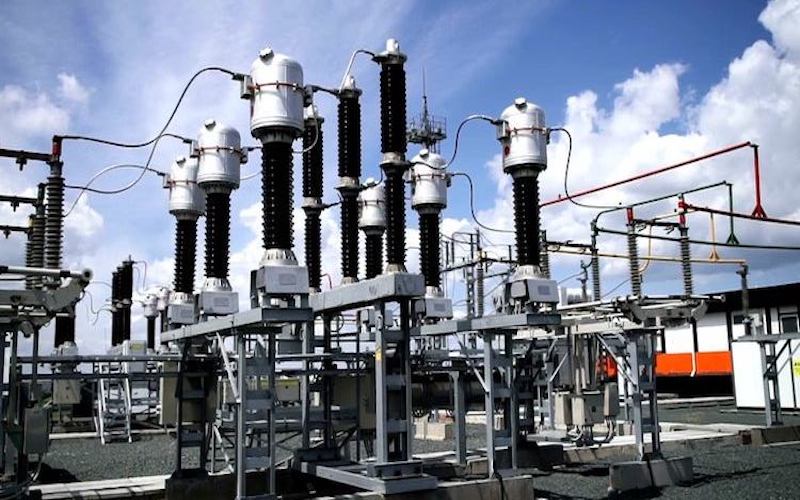The Nigerian government has initiated a consultation process to revamp the country’s power sector. During a three-day retreat in Abuja, Minister of Power, Chief Adebayo Adelabu, hinted at a potential shift away from dollar-denominated transactions in the power sector to address gas supply challenges.
Consideration to Eliminate Dollar-denominated Transactions
Adelabu emphasized the need to address the volatility of gas prices by Generation Companies (Gencos) by removing the dollar factor. This move is seen as a strategy to manage the foreign currency-related inflationary trends affecting electricity pricing. The minister suggested trading gas in the local currency, the naira, to mitigate the impact of foreign currency fluctuations.
Integrated National Electricity Policy and Strategic Implementation Plan
The retreat marked the initial step in establishing the Integrated National Electricity Policy and Strategic Implementation Plan, as mandated by the Electricity Act of 2023. Adelabu highlighted the current composition of Nigeria’s electricity generation, with an emphasis on the need for cleaner fuels and renewable energy sources.
Addressing Gas Pricing and Contractual Obligations
Adelabu acknowledged the challenges posed by the pricing of gas in U.S. dollars, affecting electricity pricing for end-users. He proposed incentivizing stakeholders to supply gas for inland use by implementing domestic gas policies. The minister urged a shift in the pricing mechanism for gas to manage inflationary pressures and foster investment in naira-denominated gas production.
Challenges and Restructuring Plans
The minister identified poor track records in contracting, contract management, and adherence to contractual obligations as issues within the power sector. Adelabu proposed restructuring the Transmission Company of Nigeria (TCN) into Independent System Operator (ISO) and Transmission Service Provider (TSP). He also called for collaboration between states, local government authorities, and Distribution Companies (Discos) to reinforce and extend local distribution infrastructure.
Role of Pension Fund Administrators and Financial Considerations
Adelabu urged Pension Fund Administrators, managing over N17 trillion, to gain a better understanding of Nigeria’s power sector and contribute to bankable strategies for capital infusion. The minister emphasized the economic and social imperatives of ensuring steady power supply and the role of the private sector in driving investments.
Challenges in the Power Sector and Regulatory Perspective
Chairman of the Nigerian Electricity Regulatory Commission (NERC), Mr. Sanusi Garba, outlined regulatory challenges, including political influence on investment decisions, poor corporate governance in Discos, and legal constraints affecting reform implementation. Garba highlighted the reduction in federal government subsidy obligations and emphasized the need for cost-reflective tariffs to attract investments and ensure sector viability.
Economic Growth and Privatization Agenda
Minister of Finance and Coordinating Minister of the Economy, Mr. Wale Edun, underscored the importance of steady power supply to economic growth and reiterated President Bola Tinubu’s commitment to prioritizing power sector reforms. Minister of Budget and Economic Planning, Atiku Bagudu, emphasized the pivotal role of the private sector in the power sector, considering limitations in public sector spending.
BPE’s Plan for Stake Sales through IPOs
The Bureau of Public Enterprises (BPE) disclosed plans to sell government stakes in Eleme Petrochemical Company Limited, Electricity Distribution Companies, Nigeria-Reinsurance, Nicon Insurance, and Nigeria Machine Tools through Initial Public Offerings (IPOs) in 2024. BPE Director General, Mr. Alex Okoh, emphasized the importance of public ownership through IPOs and outlined the government’s plans to resolve ownership challenges in some Discos.
Outlook for 2024 and Positive Strides in Privatization
Okoh expressed optimism about BPE’s progress in 2024, citing the constitution of the National Council on Privatisation (NCP) and the administration’s commitment to private sector-oriented policies. He highlighted achievements despite challenges and the government’s intention to create an enabling environment for investments.
Conclusion and Future Strategies
The federal government’s consultation and retreat signal a renewed effort to address challenges in Nigeria’s power sector. The potential shift away from dollar-denominated transactions, emphasis on cleaner fuels, restructuring plans, and the consideration of domestic gas policies reflect a comprehensive approach to revitalizing the power sector. The government’s commitment to privatization, stake sales through IPOs, and engagement with stakeholders indicate a strategic focus on attracting investments and fostering sustainable growth in the power sector.
Source: thisdaylive.com





